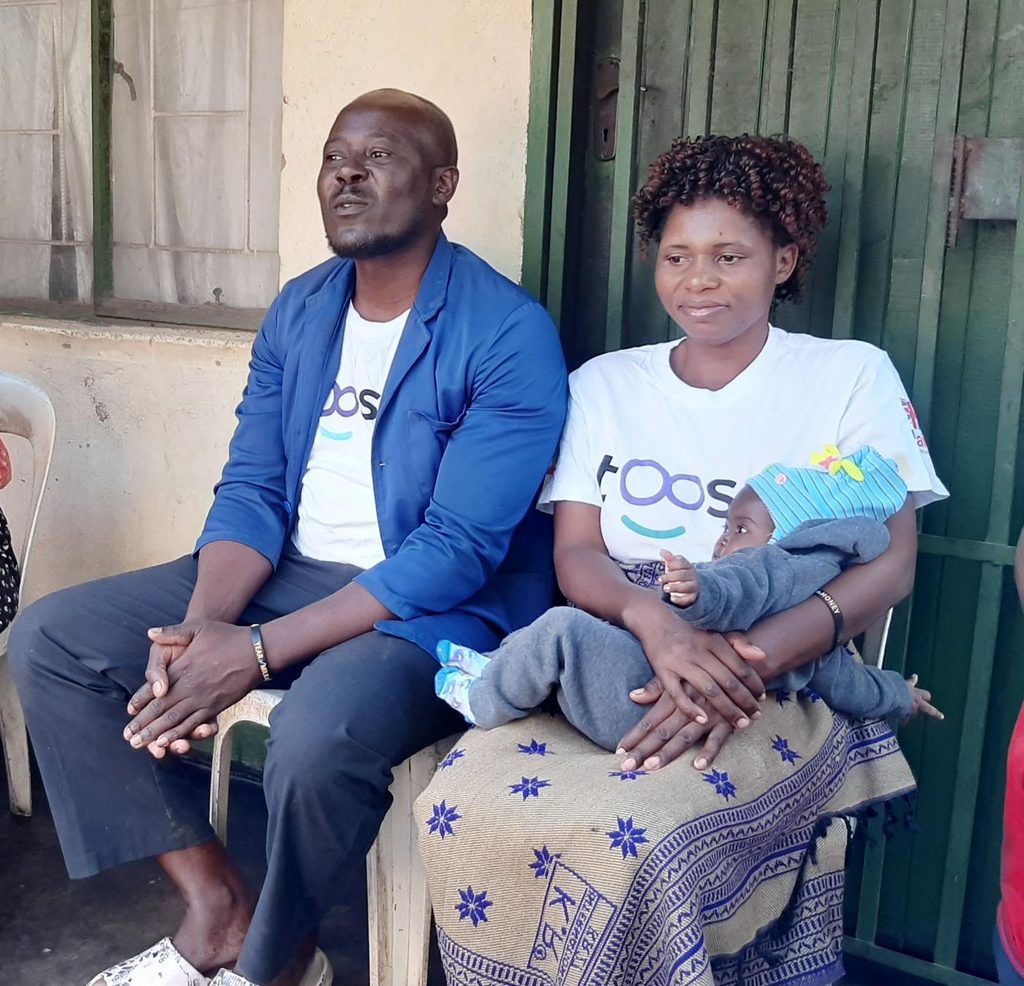Simbarashe and Linet’s journey to a happy family
Once trapped in endless conflicts, Simbarashe and his wife Linet have turned their relationship around, using a family well-being programme to turn tension into trust and restore love and harmony in their household.

Walking side by side with his wife, Simbarashe, a visually impaired 44-year-old man from Chiredzi, carries his youngest child on his right while strolling to the local town center, where they settle at a fast-food restaurant for lunch.
Together with his wife (Linet) and their 2 children, they all enjoy a family meal of fried chicken, fries and soda juice while sharing jokes.
This situation, though ordinary to a passerby, was unimaginable just a few years ago.
Struggles in communication and conflict
Simbarashe and Linet attended a social empowerment and family well-being programme, where they learnt about ways to relate and communicate with each other.
“We used to fight a lot—about money, respect, and even our future plans,” Simbarashe shared, reflecting on the challenges he and his wife faced.
“Having a conversation with my wife was very difficult. I always thought she disrespected me, and she didn’t understand me either. As a result, most of our conversations ended badly,” he added.
Conflict was not limited to communication. Their differing plans for the future added to their struggles. “I had plans of starting a business, my wife wanted a residential stand, so that became another source of conflict in our household,” he added.
Simbarashe’s wife said using the lessons learnt from the programme, they were able to sit down, discuss and agree to start with a business and a residential stand later.
Simbarashe had taken part in a cash-based transfer programme as part of relief aid during the COVID-19 era, and it was through this programme that he had heard about the social empowerment and family well-being programme and decided to attend with Linet.
“All the lessons we went through, improved our relationship. I was very temperamental, I would raise my voice if my wife failed to promptly respond to me but now, we communicate better because we came to understand each other’s weaknesses,” said Simbarashe.
They were able to sit down and discuss about their future plans and agreed to start with a business which was Simbarashe’s idea.
“We sat down, discussed and agreed to start with a business before buying a residential stand,” Linet said.
Shared responsibilities and strengthened bond
Linet explained how while she previously struggled with household chores, Simbarashe now helps a lot and this has further strengthened their bond as they now have time to socialise.
“If she is overwhelmed with work, since we have 2 young children, I help with minding the babies, feed or bath them.”
Simbarashe
“If she is overwhelmed with work, since we have 2 young children, I help with minding the babies, feed or bath them,” said Simbarashe.
This was confirmed by Linet who said, “I realised that there are things that he can actually do. So now he sometimes chips in to feed children while I do other things and this gives us time to socialise.”
About the Toose programme
Toose is a household social empowerment tool focusing on gender transformation. It equips ordinary men and women with tools to envision new ways of relating to each other. It also addresses issues stemming from gender inequality and social norms that perpetuate violence against women and girls.
The programme, a 6 to 8 months training seeks to address gender-based violence, takes couples through 9 modules including visioning for a happy family, positive time and communication in a relationship, exploring gender roles in a family and relationship building among others.


